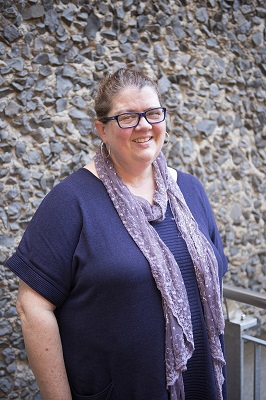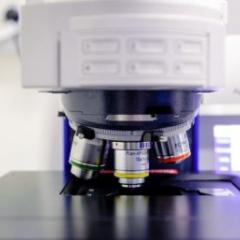 The University of Queensland’s Professor Gwen Lawrie has been awarded the prestigious Fensham Medal for 2021, for her outstanding contributions to the teaching of chemistry and science.
The University of Queensland’s Professor Gwen Lawrie has been awarded the prestigious Fensham Medal for 2021, for her outstanding contributions to the teaching of chemistry and science.
The prize is the most senior education award granted by the Royal Australian Chemical Institute (RACI) and is named after the late Peter Fensham, a much-celebrated leader in Australian science and chemistry education.
Professor Lawrie said she was thrilled that her commitment to educating the next generation of chemists and scientists has been recognised and valued in this way by her peers.
“It’s an honour to receive this award, and a privilege to have been able to follow my passion for chemistry research over an eclectic career,” she said.
“I’ve been able to help address real-world challenges including respiratory protection, coal seam gases, colloidal diagnostic tools and cartilage repair.
“But over the past 12 years, I’ve been most passionate about my work as a teacher and science education researcher.
“I’ve been able to follow my fascination with student thinking and learning, as well as how chemists use representations to communicate their understanding of concepts.
“I love teaching and it’s certainly a shifting landscape currently that requires new approaches to help students learn in hybrid environments.”
Professor Lawrie said that she was most intrigued about how her students thought and how best to create constructive interactive learning experiences.
“In chemistry, we work with entities that are too small to see – atoms and molecules – so I try to combine resources that help students develop their mental models of what is happening at the molecular level,” Professor Lawrie said.
“It’s very important to me to know who exactly my learners are and to be an inclusive teacher.
“I prefer to teach when students are working alongside me at the same time either in workshops or real-time lectures so that I can observe their progress.
“I use live demonstrations of chemical processes or reactions whenever I can in my teaching – when things go right, students tell me that the activity has helped them to make sense of an abstract concept.
“But when things go wrong, it still achieves the same outcome but in a more memorable way – like the time when a coke/mentos reaction was way too enthusiastic, making a sticky mess, or when a pickle electrolysis process nearly set off a fire alarm.”
She hopes that her win inspires other chemistry teachers, and science teachers more broadly, to embrace reflexive teaching practices and metacognitive awareness.
“Every student arrives in your classroom with different prior learning and diverse learning pathways – understanding this diversity enables you to provide better learning resources and more inclusive instruction,” Professor Lawrie said.
“The core question that underpins my teaching is always ‘how do I know that my students are learning?’.
“Find out who your students are and what they know before you teach them – you’ll be well on your way to helping them expand their world.”
Media: Dominic Jarvis, science.media@uq.edu.au, +61 413 334 924.



